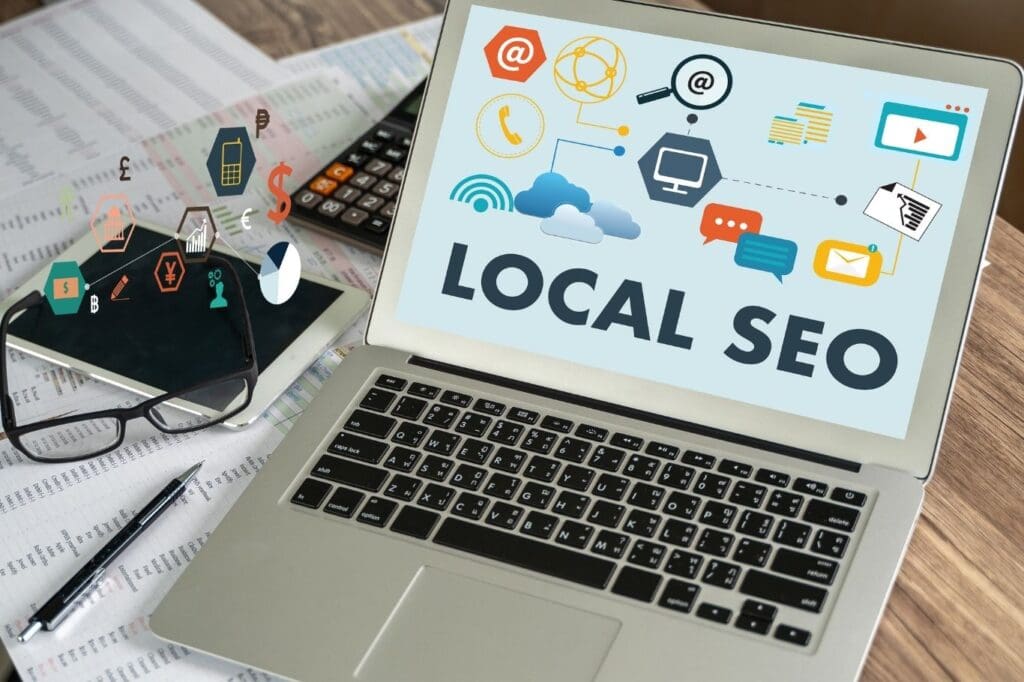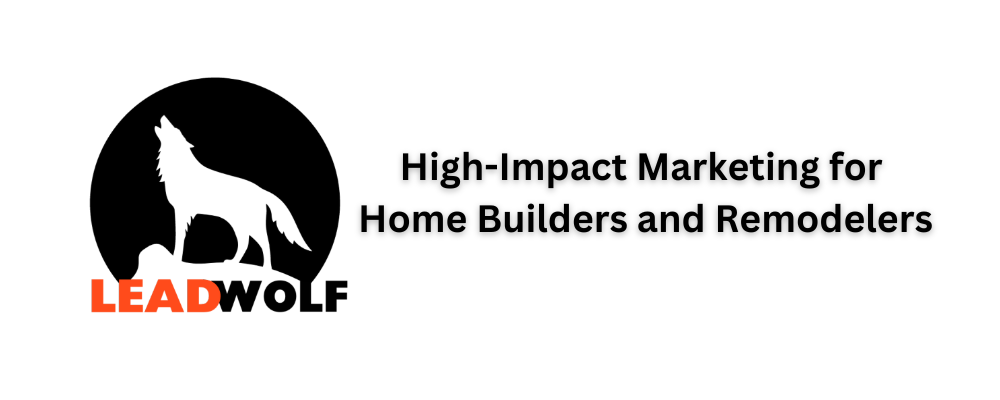How To Be Found Organically In Your Local Market
In the era of digital dominance, being discovered by local customers has become a top priority for businesses. While online visibility on a global scale is valuable, tapping into your local market can profoundly impact your success. This is where the power of local organic marketing comes into play, allowing you to connect with nearby consumers actively seeking products or services like yours.
In this comprehensive guide, we will explore proven strategies and tactics to help you boost your local presence and be found organically by customers in your local market. From optimizing your website for local SEO to engaging with local customers, we’ll provide actionable insights to help you stand out. By implementing these techniques, you can establish a strong foothold in your community, foster customer loyalty, and drive tangible results for your business.

Understanding Your Local Market
Conducting Market Research
Before diving into the strategies of being found organically in your local market, gaining a deep understanding of the landscape you’re operating in is crucial. Market research provides valuable insights to guide your marketing efforts and ensure they are tailored to your target audience. Here are three key steps to conducting effective market research:
- Identifying Your Target Audience: To reach your local market effectively, you must first identify your ideal customer profile. Determine the demographics, interests, and needs of your target audience. Are they young professionals, families, or retirees? What are their preferences, pain points, and purchasing behavior? Understanding your target audience can align your marketing efforts with their specific needs and preferences.
- Analyzing Local Competitors: Researching your local competitors is essential to understand their strategies, strengths, and weaknesses. Identify your main competitors in the local market and analyze their online presence, messaging, pricing, and customer reviews. This analysis will help you identify areas where you can differentiate yourself and stand out.
- Assessing Market Trends and Preferences: Stay informed about your local market’s latest trends and preferences. Are there emerging industry trends or changes in consumer behavior that could impact your business? Conduct surveys and interviews, and analyze market reports to gain a comprehensive understanding of your local customers’ evolving needs and preferences. This knowledge will enable you to tailor your offerings and marketing messages accordingly.
Optimizing Your Website for Local SEO
Keyword Research for the Local Market
One of the key components of effective local SEO is conducting thorough keyword research to understand the search terms your local audience uses. Here are two essential steps to consider:
- Identifying Local Keywords: Start by brainstorming keywords relevant to your business and location. For example, if you own a bakery in New York City, relevant local keywords could include “NYC bakery,” “best bakery in NYC,” or “bakery near me.” Use keyword research tools like Google Keyword Planner, SEMrush, or Moz Keyword Explorer to identify popular local keywords with decent search volumes.
- Utilizing Long-Tail Keywords: Long-tail keywords are longer, more specific phrases that cater to local searches. They tend to have lower search volumes but higher conversion rates. Incorporate long-tail keywords that reflect the specific needs of your local customers. For instance, “gluten-free bakery in NYC” or “birthday cake delivery in NYC.” These targeted phrases help you attract customers actively looking for your specific offerings.
On-Page Optimization Techniques
Optimizing your website’s on-page elements is crucial for local SEO. Implement the following techniques to improve your visibility in local search results:
- Optimizing Meta Tags and Descriptions: Craft compelling meta tags (title tags) and meta descriptions that include relevant local keywords. This helps search engines understand the content of your webpages and improves your chances of appearing in local search results. Ensure your meta tags accurately describe your content and entice users to click through.
- Incorporating Local Keywords in Content: Create high-quality content that includes local keywords naturally. Write blog posts, product descriptions, and landing pages that address local topics, events, and concerns. For example, if you own a spa in Miami, write articles about “relaxation tips in Miami” or “best spa treatments for beachgoers in Miami.” This targeted content signals to search engines that your website is relevant to local users.
- Implementing Structured Data Markup: Structured data markup provides additional information to search engines about your business, such as your location, contact details, business hours, and customer reviews. Implementing structured data markup (e.g., Schema.org) on your website helps search engines better understand and display this information in search results, increasing your visibility and credibility.
Creating Location-Specific Landing Pages
Location-specific landing pages are essential for targeting different areas within your local market. Follow these steps to optimize your landing pages:
- Including Local Information and Keywords: Customize each landing page to include local information such as city names, neighborhoods, or landmarks. Incorporate relevant local keywords throughout the content, including headings, subheadings, and body text. This increases your chances of appearing in location-based searches.
- Showcasing Customer Testimonials and Reviews: Feature testimonials and reviews from satisfied customers specific to each location. Positive reviews enhance your credibility and encourage local customers to choose your business. Displaying testimonials with location-specific details further reinforces your presence in the local market.

Building Your Online Presence
Claiming and Optimizing Google My Business Listing
A solid online presence is vital for businesses; a crucial element of that presence is your Google My Business (GMB) listing. Here are three steps to optimize your GMB listing for maximum visibility:
- Providing Accurate Business Information: Claim your GMB listing and ensure that all the information provided is accurate and up to date. This includes your business name, address, phone number, website URL, and business hours. Accuracy is key for potential customers searching for your business and for search engines to understand and display your information correctly.
- Encouraging Customer Reviews and Ratings: Actively encourage satisfied customers to leave reviews and ratings on your GMB listing. Positive reviews boost your credibility and influence potential customers’ decision-making process. Respond to positive and negative reviews in a timely and professional manner to show your dedication to customer satisfaction.
- Adding Photos and Videos to Showcase Your Business: Visual content engages and helps potential customers understand your business. Upload high-quality photos and videos that accurately represent your products, services, and atmosphere. Showcase your business premises, team members, happy customers, and any unique features that set you apart from competitors.
Optimizing Local Business Directories and Review Sites
In addition to your GMB listing, optimizing other local business directories and review sites can further enhance your online presence. Follow these steps:
- Claiming Listings on Popular Directories: Identify popular local directories relevant to your industry, such as Yelp, Yellow Pages, TripAdvisor, or industry-specific directories. Claim and verify your business listings on these platforms. Ensure your business information is consistent across all directories, including your name, address, phone number, and website.
- Encouraging Positive Reviews and Responding to Feedback: Actively request reviews from satisfied customers on these directories. Positive reviews on external platforms provide additional social proof and increase your visibility. Monitor these platforms regularly and respond to customer feedback, both positive and negative. Responding to feedback shows that you value customer input and are committed to addressing their concerns.
Generating Local Backlinks and Citations
Backlinks and citations from reputable local sources can significantly improve your online visibility. Consider the following strategies:
- Engaging with Local Influencers and Bloggers: Identify influential bloggers, content creators, and social media influencers in your local area. Collaborate with them by offering your products or services for reviews or features. Their endorsement can help you reach a wider local audience and generate valuable backlinks to your website.
- Participating in Community Events and Sponsorships: Get involved in local community events, sponsorships, or charity initiatives. Participating in these activities demonstrates your commitment to the community and generates local publicity. Local newspapers, websites, and organizations may mention or feature your business, providing valuable citations and backlinks.

Engaging with Local Customers
Utilizing Social Media for Local Engagement
Social media platforms offer a powerful way to engage with your local audience and build meaningful connections. Here are three strategies to maximize your local engagement on social media:
- Creating Local-Specific Social Media Profiles: Establish dedicated social media profiles for your local market. This allows you to tailor your content and messaging to your local audience. Use local keywords and hashtags in your profile and posts to increase your visibility within the local community.
- Sharing Local News and Events: Keep your audience informed about local news, events, and relevant happenings. Share updates about community events, initiatives, and partnerships. By positioning yourself as a valuable source of local information, you enhance your brand’s visibility and establish yourself as an active participant in the local community.
- Responding to Customer Inquiries and Comments: Actively monitor and respond to customer inquiries, comments, and messages on your social media profiles. Promptly address any customer concerns or questions, showing that you value their feedback and are committed to providing excellent customer service. Engaging with customers on social media fosters a sense of connection and builds trust.
Hosting Local Events and Workshops
Hosting local events and workshops provides a unique opportunity to engage with your local community face-to-face. Here’s how to make the most of these events:
- Promoting Events on Social Media and Local Platforms: Leverage social media and local event listing platforms to promote your events. Create compelling event pages with all the necessary details, including date, time, location, and how attendees can RSVP or purchase tickets. Use eye-catching visuals and share event updates leading up to the day.
- Networking with Potential Customers and Partners: Use local events and workshops to network with potential customers and forge partnerships with local businesses or organizations. Take the time to engage in conversations, understand their needs, and showcase how your products or services can benefit them. Building personal connections and relationships can lead to long-term customer loyalty and business opportunities.
- Collecting Customer Feedback and Testimonials: Use events as an opportunity to gather feedback from attendees. Provide feedback forms or surveys to gather insights about their experience and suggestions for improvement. Additionally, request testimonials or reviews from satisfied attendees, which can be used in your marketing efforts to build credibility and attract more local customers.

Monitoring and Analyzing Your Local Performance
Tracking Local Search Rankings
To gauge the effectiveness of your local marketing efforts, it’s crucial to track your local search rankings. Here are two key methods to monitor your rankings:
- Utilizing Tools for Keyword Tracking: Use reputable SEO tools like SEMrush, Moz, or Ahrefs to track the rankings of your target local keywords. These tools provide insights into keyword positions, search volumes, and trends. Regularly monitor your rankings to identify any fluctuations and assess the impact of your optimization efforts.
- Monitoring Google Analytics and Search Console Data: Google Analytics and Google Search Console provides valuable data on your website’s organic search performance. Analyze the data to understand the keywords driving traffic to your site, the geographical distribution of your visitors, and other relevant metrics such as click-through rates and impressions.
Analyzing Customer Behavior and Conversions
Understanding customer behavior and conversions is essential for measuring the success of your local marketing initiatives. Consider the following metrics:
- Tracking Website Traffic and Engagement Metrics: Monitor website traffic metrics such as unique visitors, session duration, page views, and bounce rates. Analyze how local visitors interact with your site compared to the overall traffic. Assess engagement metrics to determine if your website effectively captures and retains the attention of local visitors.
- Assessing Conversion Rates and Goal Completions: Set up conversion tracking in Google Analytics to measure the completion of goals, such as form submissions, newsletter sign-ups, or online purchases. Analyze the conversion rates for your local audience to determine if your local marketing strategies are effectively driving desired actions.
Making Data-Driven Improvements
Data analysis plays a crucial role in optimizing your local marketing efforts. Use the insights gained from monitoring and analysis to make data-driven improvements:
- Identifying Areas for Optimization: Identity areas where your local marketing strategies may need to be revised. Are certain keywords not performing as expected? Are there specific pages or elements on your website that need improvement? Pinpoint the areas that require attention to enhance your local performance.
- Adjusting Strategies Based on Performance Analysis: Make informed adjustments to your strategies based on the data analysis. This could involve refining your keyword targeting, optimizing landing pages, improving website user experience, or adjusting your content strategy. Continuously iterate and test new approaches to optimize your local marketing performance.
Establishing a strong organic presence in your local market is essential for the success of your business. By understanding your local market, optimizing your website for local SEO, building your online presence, engaging with local customers, and consistently monitoring and improving your strategies, you can increase your visibility, attract local customers, and foster meaningful connections within your community. Remember, the key is to adapt to evolving market trends and consumer behavior while staying committed to providing valuable content and exceptional customer experiences.
If you’re ready to take your local market presence to the next level, don’t hesitate to contact us today. Our team is here to provide guidance, support, and tailored solutions to help you achieve your organic local marketing goals. Together, we can drive your business forward, strengthen your position in the local market, and create lasting success. So contact us now, and let’s start making a real impact in your local community.

